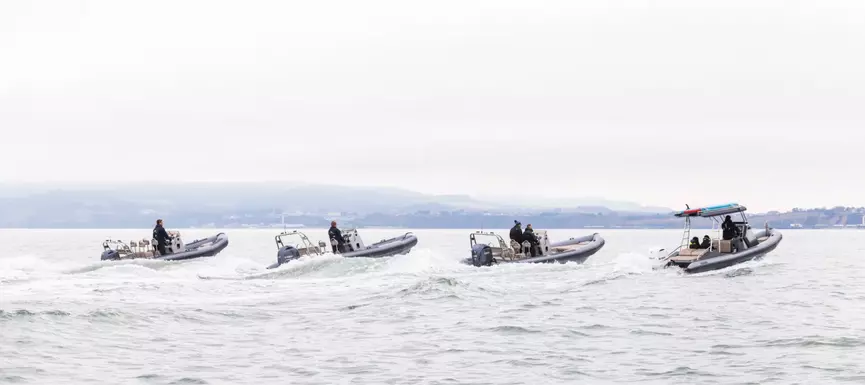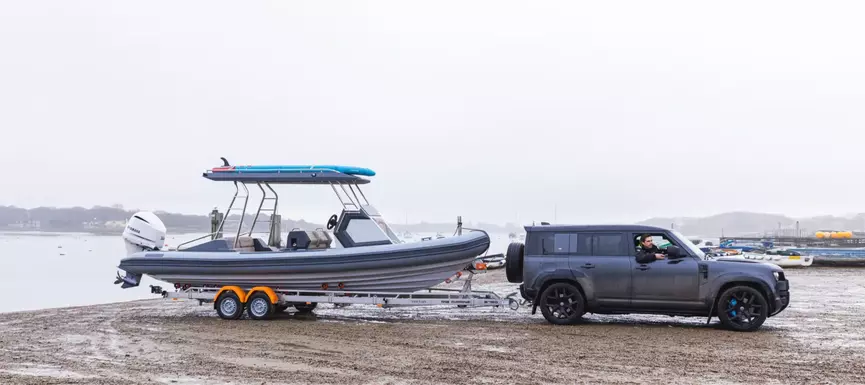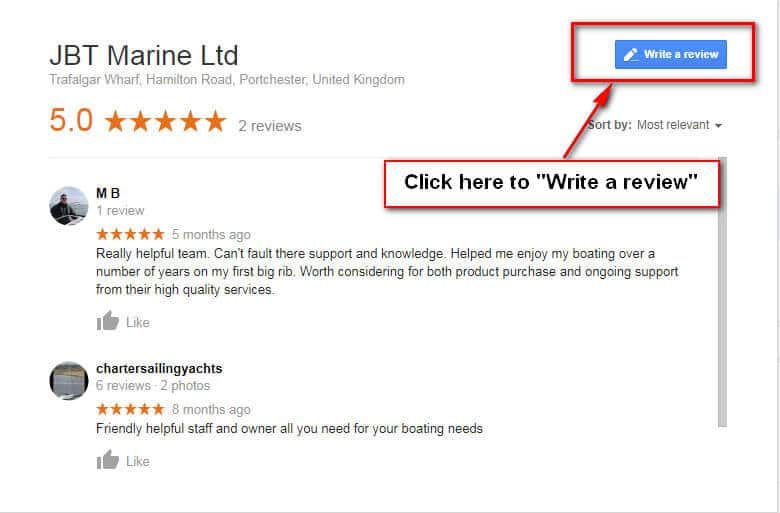A guide to RYA powerboat training for drivers
Whether you are a beginner or an experienced driver, there’s always something new to learn about being on the water.
Why should you consider powerboat training?
In most countries you have to pass a driving test and get an official licence before you can legally drive a powerboat or RIB. There’s no such requirement in Britain (except for very large yachts). Powerboat training and certification are voluntary. Although contrary to what you might expect there are actually fewer boating accidents in UK waters than in many countries that do insist on a formal driving licence.
That said, it’s extremely unwise to take to the water without any knowledge or training. There are plenty of pitfalls including some real potential dangers and many of them can’t be avoided with just common sense.
Boating is statistically very safe in Britain because most people get themselves trained to a higher level than the bare minimum required by a basic exam. The RYA’s (Royal Yachting Association) training scheme is the international gold standard for recreational boating and its certificates are widely recognised abroad.
Good reasons to get trained
There are many good reasons to sign up for at least one training course.
- First and foremost, you will definitely get a lot more enjoyment from your boating if you know what you’re doing – and so will your family and friends.
- If you own your own boat, your insurance premium will almost certainly be lower and your maintenance and repair bills are likely to be much smaller, too.
- A good working knowledge of tide, weather and sea conditions is absolutely essential for safe boating in coastal waters
- Aa training course will teach you some very useful skills, such as high-speed boat handling techniques and parking manoeuvres, which are difficult to figure out on your own.
- Just like driving a car, you need to understand the ‘rules of the road’ including some that aren’t obvious or intuitive.
- A boating certificate also enables you to hire boats and yachts on holidays abroad, charter a boat, or to take your own boat overseas.

Learn locally, or on holiday
There are RYA recognised Training Centres all around the UK. Also, you can do courses in places like Greece, Spain and the Caribbean, combining a hands-on boating course with a holiday and learn the essential skills in hot, sunny weather. Although if you plan to do the majority of your boating in tidal waters, it is worth doing a course in tidal waters. In the UK there are powerboat charter companies and boat sharing Clubs, many of which also offer approved RYA training as part of the induction process.
Most Training Centres are geared up to teach a whole family, either on the same course or on different courses appropriate to their age, knowledge and ambitions. A further option for boat owners, offered by some training centres, is to arrange private tuition from an RYA instructor on your own boat. The obvious advantage of this is that it allows you to learn and practice on the same type of boat that you’re going to be using.

Beginners start here
The RYA scheme starts with two beginners’ courses: Level 1 Start Boating and Powerboat Handling Level 2. Neither of them assume any prior knowledge of boating. (Both courses are offered by Trafalgar Powerboat Training too!)
Level 1 is a one-day introductory session out on the water that covers the basics and gives you the knowledge and skills to drive a boat safely under the supervision of a more experienced person.
Level 2 is the course for you if you want to be independent and self-sufficient on the water. You don’t need to have completed a Level 1 course; you can go straight in at this level. It’s a two-day, hands-on course that covers the essentials you need to enjoy your boat safely in good weather conditions:
- launching & recovery
- boat handling and manoeuvres
- parking techniques – mooring, anchoring & coming alongside
- man overboard rescue
- and much more.
Most insurers expect boat owners to have a Level 2 certificate, or to demonstrate that they have equivalent experience. It’s also the minimum qualification for an International Certificate of Competence (ICC), which you will need if you want to drive boats and yachts abroad.
Essential boating knowledge
After passing your Level 2 course the next step, if possible, is to practice the skills you’ve learned and get some experience. This may be in your own boat, on a holiday or as a member of a shared boating club such as Boat Club Trafalgar.
At the same time, you can start preparing for the RYA Day Skipper course. This is a ‘shore-based’ boating theory course that equips you with the essential knowledge and practical skills needed to confidently and safely navigate your boat:
- seamanship
- pilotage
- chartwork
- weather forecasting
- collision avoidance
- emergency and safety procedures
- and more…
There’s a lot to learn: about 40 hours of teaching followed by two exam papers. The Day Skipper course can be taken either as a series of short sessions, by distance learning online or as a one-week intensive course. It might seem like a bit of hassle, yet so much crucial and useful knowledge is packed into in this course that it really is worthwhile. Most people tend to do it in the winter months in preparation for the next season.
Intermediate and advanced courses
The next practical on-the-water training course in the RYA scheme, Intermediate, is a two-day session geared towards people who want to go off cruising in large motor yachts and drive high-performance powerboats. The course syllabus assumes that you already have the practical skills and experience of Level 2, plus all of the knowledge that’s covered in the Day Skipper course. It’s strongly recommended that you also have a first aid certificate and a marine VHF radio operator’s licence.
The Intermediate course content includes:
- cruise planning
- boat preparation
- practical pilotage and navigation
- more advanced boat-handling and manoeuvring techniques
- more rigorous man overboard rescue training
An advanced boating theory course called Coastal Skipper/Yachtmaster Offshore follows on from Day Skipper, with another 40 hours of learning and three exams. You’ll need to do that (or at least have the equivalent level of knowledge) before tackling the Advanced practical powerboat course. This is the course for adventurous boaters and for professional boat drivers, training you for:
- longer trips
- navigation at night
- boat handling in challenging weather and sea conditions
The Advanced course is arguably a bit more advanced more than the average leisure RIB or powerboater actually needs. However, it’s highly recommended if you’re planning to go off on an extended cruise.
Specialist skills and informal training
The RYA also offers a range of short, specialist courses that are very useful for some types of boating. These include subjects like radar, sea survival, first aid, VHF radio and diesel engine maintenance.
Most RYA Training Centres can also offer informal training on request – perhaps a one-day refresher course if you haven’t been on the water for a while, or a boat-handling session if you’ve plenty of experience in other types of boats but are either new to fast powerboats and RIBs, or want a session in your own boat.
However, much training you have, it’s no substitute for going out on the water and building up hours and days of practical experience, driving your own boat or other people’s.
Even after years of doing it, you’ll find that you still keep learning. And that’s what makes it so rewarding.
For more information on RYA training courses, visit RYA.org.uk.

